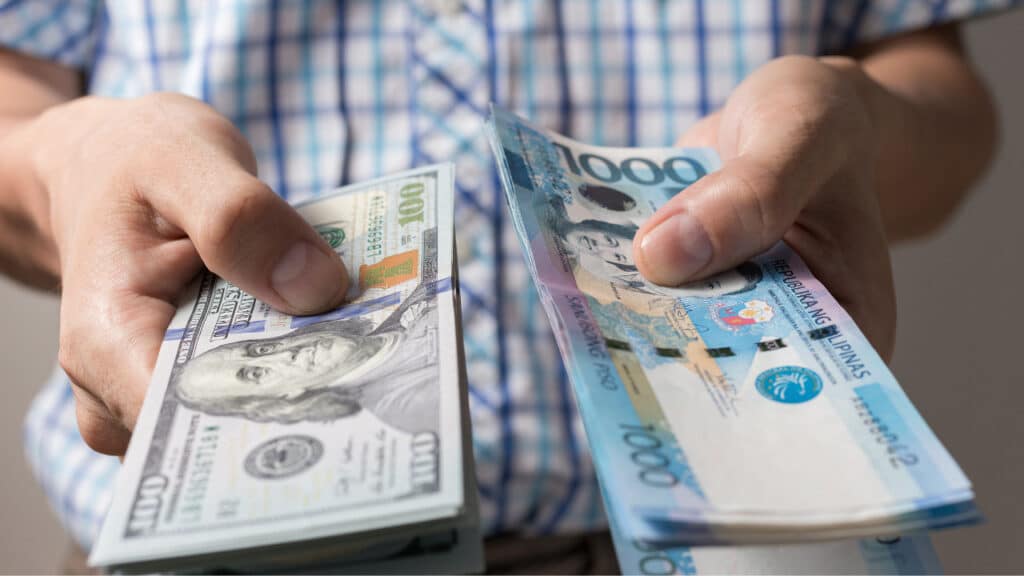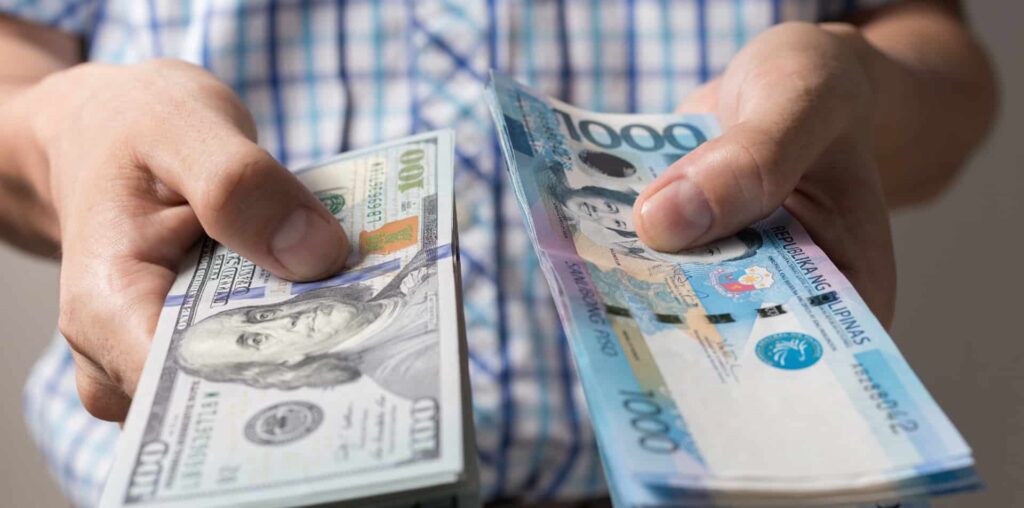

Inquirer file photo
MANILA, Philippines — The Philippine peso dropped on Wednesday close to a few centavos away from a record level of 59.
It is, however, its lowest level in over two years as the Philippine peso was overpowered by a rallying dollar that drew its strength from fresh developments following Donald Trump’s US election win.
The local currency finished at 58.91 against the greenback, shedding 10 centavos from its previous closing of 58.81.
READ MORE:
Peso may fall to 59, BSP to intervene
October inflation in Cebu rises to 2.8% as typhoon effects, food costs take their toll
Data showed this was the peso’s weakest close in 25 months, or since ending at 58.94 on Oct. 20, 2022. The local unit’s worst showing yesterday stood at 58.925, inching close to the record-low level of 59.
Trading was also heavy, with funds worth $1.1 billion switching hands.
A foreign exchange trader said the peso was trumped by a strong dollar that continued to enjoy inflows amid new postelection developments in the United States.
“The peso weakened near the 59-level after President-elect Trump added former [Federal Reserve] official Kevin Warsh as a candidate for Treasury secretary. This move is widely viewed as supportive of his alternative approach to the US central bank, falling in line with the US economic plans of Trump,” the trader said.
Heightened tensions
Separately, Michael Ricafort, chief economist at Rizal Commercial Banking Corp., said heightened tensions between Russia and Ukraine pushed up safe haven demand for the greenback, thereby pressuring the peso.
“Ukraine carried out its first strike with US missiles in Russia. Russian President Vladimir Putin pushed ahead with a pledge to update Russia’s nuclear doctrine to expand the conditions for using atomic weapons,” Ricafort said.
Some analysts had flagged the risks of a rate-cutting pause by the Bangko Sentral ng Pilipinas (BSP) should the peso remain under pressure.
Unlike in the United States, where a slowing job market had prompted the US Federal Reserve to deliver a jumbo 50-basis-point (bp) cut in September, the BSP entered its easing era in August with the traditional quarter-point reduction to the policy rate.
In October, the BSP cut the policy interest rate by 25 bps again to 6 percent, with Governor Eli Remolona Jr. dropping clear hints of additional—but gradual—easing moves until the key rate falls to 4.5 percent by the end of 2025.
But this week, Remolona floated the possibility of an easing pause at the Dec. 19 meeting of the Monetary Board, citing persistent price pressures. To prevent the peso from weakening too much and fanning inflation, the BSP chief said the central bank had been intervening in the foreign exchange market recently, albeit in “small amounts.”
Read Next
Disclaimer: The comments uploaded on this site do not necessarily represent or reflect the views of management and owner of Cebudailynews. We reserve the right to exclude comments that we deem to be inconsistent with our editorial standards.

